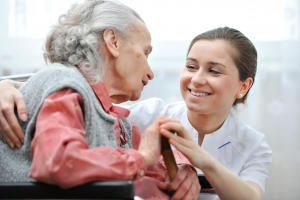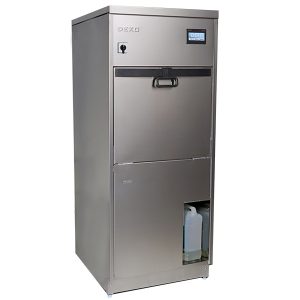 Hospice care is designed to improve the quality of life of both adults and children who have life-limiting or terminal conditions.
Hospice care is designed to improve the quality of life of both adults and children who have life-limiting or terminal conditions.
People working in hospices look after people’s physical and emotional needs and offer support for family and loved ones. They also have to ensure the hospice itself is safe.
So it’s important that the health and safety of hospice patients are made a priority. We know that people with existing underlying health conditions are more vulnerable to infections. That’s why having and implementing strict infection control procedures is an integral part of hospice care.
These procedures should become embedded in routine practice for all hospice patients and not just used for those patients who are known to have infections.
As in hospitals, many of the same precautions should be standard practice within a hospice setting.
Hand Hygiene
The World health organisation define 5 moments when hand hygiene is necessary.
- Before patient contact
- After patient contact
- After bodily fluid exposure
- Before and after aseptic procedures
- After contact with a patients environment
Handwashing prevents infection from spreading. If staff or visitors are not following good hand hygiene, germs can easily be transferred onto objects and other people via their hands.
 PPE
PPE
All hospices should have a risk assessment in place to help them determine when PPE is necessary.
An activity is deemed low risk if no contact with body fluids is likely. No PPE is required for these activities.
If contact with body fluids is likely, but splashing is unlikely, the activity is classed as medium risk. Disposable gloves and aprons should be worn.
A high risk activity is when there is a danger of splashing from body fluids, or a patient has a respiratory infection. Staff are required to wear goggles and a surgical mask as well as a disposable apron and gloves.
All PPE must be disposed of carefully. Any disposable items should be put in a hazardous waste bag and disposed of correctly. Reusable items should be cleaned and disinfected appropriately to ensure they are safe to use again.
Sharps Disposal
Sharps can pose a risk in hospices and other care home facilities. A sharp contaminated with an infected person’s blood can transmit more than 20 diseases, so they must be disposed of carefully and safely.
All staff should try and avoid using sharps unless absolutely necessary.
Medical sharps include:
- Needles and anything attached to them such as syringes
- Scalpels and scissors
- Lancets
- Broken glass items
If used, sharps should be disposed of at the point of use in an appropriate sharps container. All sharps bins must be locked away and sealed when full.
Human Waste
Bacterias including C. difficile, norovirus and MRSA can be found in human waste, and in a healthcare setting, it should be presumed infectious.
The safest and most efficient way to clean reusable bedpans and urine bottles is to use a washer disinfector.
All used bedpans and urine bottles should be taken to the hospice’s sluice room and immediately put in a washer disinfector. They should not be left out on a side or rinsed in a sink.
 Dekomed have been keeping people safe for 30 years
Dekomed have been keeping people safe for 30 years
If you haven’t yet changed to reusable bedpans or are still currently hand washing them, you need to talk to us now.
We can advise you on the best washer disinfector for your hospice and help you plan, fit and maintain the machine.
The health and dignity of your patients is the number one priority of you and your staff. Let us help you ensure safety isn’t compromised.
Get in touch to talk about your bedpan cleaning needs.
Tel: +44 (0)161 483 7333
